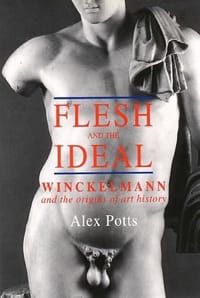Winckelmann was not just an historian of considerable stature. He was also a very powerful writer who offered an unusually eloquent account of the aesthetic and imaginative charge of the Greek ideal in art. He is particularly revealing as to the political and the homoerotic, sexual content of the fantasies that gave the antique ideal male nude its larger resonance. This book re-examines Winckelmann's canonical status as the so-called father of modern art history, showing how his systematic definitions of style and historical development can cast a new light on present-day understanding of these notions. The complexities of his new historical perspective on the art of antiquity both prefigure and undermine the more strictly historicising views of the Greek ideal put forward in the 19th century. The force of Winckelmann's writing can only be fully understood if it is seen in the context of the distinctive preoccupations and values of Enlightenment culture. It has acquired a new significance, however, as the darker aspect of Enlightenment ideals - such as the fantasy of a completely free sovereign subjectivity associated with Greek art - come more and more to the fore. Winckelmann's writing has a richness and density that take it well beyond the bounds of the simple rationalist art history and Neo-classical art theory with which it is usually associated. He often seems to speak disturbingly directly to our present awareness of the discomforting ideological and psychic contradictions inherent in supposedly ideal symbolic forms.

